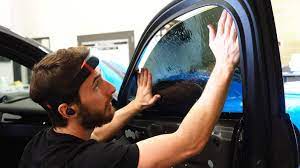In the realm of automotive ownership, the occasional need for car repair is an unavoidable reality. Whether it’s routine maintenance or unexpected breakdowns, understanding the basics of car repair can save you time, money, and hassle in the long run. In this kfz gutachter mönchengladbach guide, we’ll delve into the fundamentals of car repair, empowering every driver with the knowledge they need to navigate the world of auto maintenance confidently.
1. Regular Maintenance:
The foundation of a well-functioning vehicle lies in regular maintenance. Simple tasks such as oil changes, tire rotations, and fluid checks can significantly extend the lifespan of your car and prevent more severe issues down the road. Consult your owner’s manual for a maintenance schedule tailored to your vehicle’s make and model.
2. Diagnosing Problems:
When your car starts making unusual noises or exhibits strange behavior, diagnosing the issue promptly is crucial. Pay attention to any warning lights on your dashboard and listen for unfamiliar sounds like squealing brakes or grinding gears. Additionally, learn to recognize the difference between normal wear and tear and potential signs of trouble.
3. Basic Tools:
Equipping yourself with a basic set of tools is essential for tackling minor repairs and maintenance tasks. A well-stocked toolbox should include wrenches, screwdrivers, pliers, and a jack for lifting the vehicle. Invest in quality tools that will withstand repeated use and provide reliable performance when you need them most.
4. DIY Repairs:
Many car repairs can be completed at home with the right tools and a bit of know-how. From replacing brake pads and changing spark plugs to troubleshooting electrical issues, DIY repairs can save you a significant amount of money on labor costs. However, it’s essential to know your limits and seek professional help for complex repairs beyond your expertise.
5. Finding Reliable Mechanics:
While DIY repairs can be cost-effective for simple tasks, certain repairs are best left to the professionals. When seeking a mechanic, look for certifications, experience, and customer reviews to ensure quality service. Establishing a trusting relationship with a reliable mechanic can provide peace of mind knowing that your vehicle is in capable hands.
6. Preventative Measures:
In addition to regular maintenance and timely repairs, taking preventative measures can further safeguard your vehicle against unexpected breakdowns. Simple habits like avoiding aggressive driving, adhering to recommended service intervals, and keeping your car clean and well-maintained can help minimize the risk of mechanical issues.
7. Emergency Preparedness:
Despite our best efforts, car trouble can strike when least expected. Prepare for emergencies by keeping essential items in your vehicle, such as jumper cables, a spare tire, flashlight, and first-aid kit. Familiarize yourself with basic roadside assistance procedures, including how to change a tire and jump-start a dead battery.
8. Continuing Education:
The automotive industry is constantly evolving, with new technologies and advancements shaping the way we maintain and repair our vehicles. Stay informed about industry trends, attend workshops or seminars, and leverage online resources to expand your knowledge and skills as a DIY enthusiast or informed consumer.
In conclusion, mastering the art of car repair is a valuable skill that every driver should cultivate. By prioritizing regular maintenance, learning to diagnose problems, investing in the right tools, and knowing when to seek professional help, you can keep your vehicle running smoothly for years to come. With a proactive approach to car care and a willingness to learn, you’ll be well-equipped to handle whatever challenges the road may bring.
